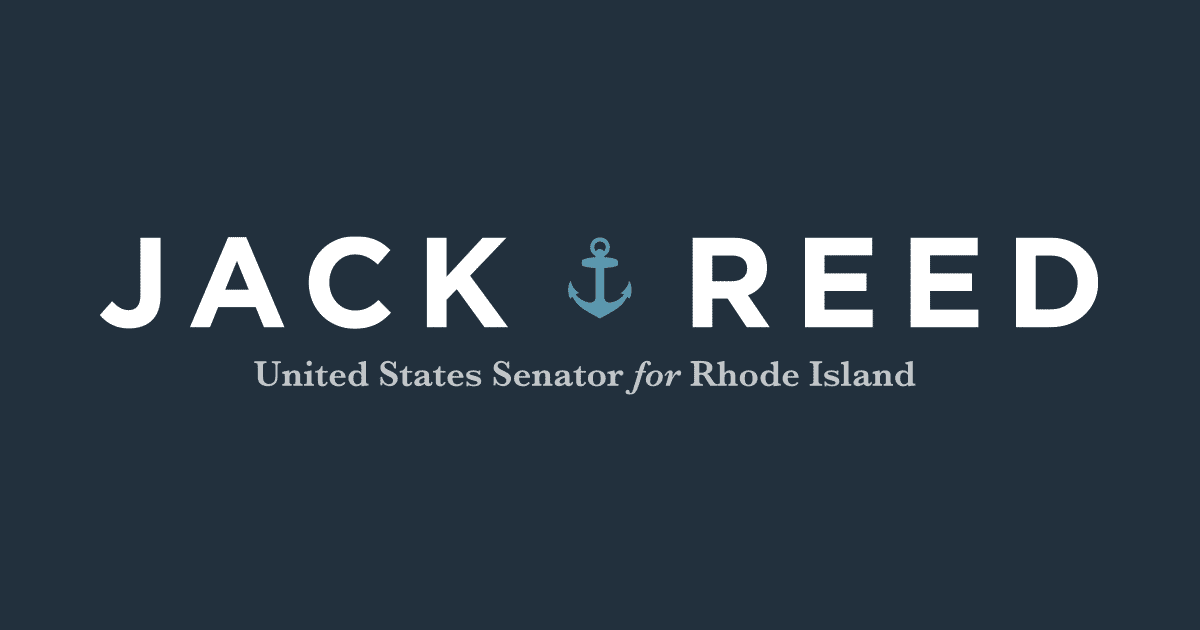Source: United States Senator for Rhode Island Jack Reed
***Visit New Inflation Reduction Act Resources Hub***
PROVIDENCE, RI – Since the Inflation Reduction Act (P.L. 117-169) passed in August 2022, there have already been over $120 billion in new project announcements in cleantech industries nationwide.
With billions more dollars of federal clean energy incentives and competitive grants up for grabs, U.S. Senator Jack Reed today joined with the Rhode Island League of Cities and Towns for a forum to help ensure Rhode Islanders and local municipalities are well-positioned to take full advantage of major funding and financing opportunities to lower energy costs.
Congress passed the Inflation Reduction Act to help lower clean energy costs by providing about $370 billion for climate solutions. The law aims to reduce carbon emissions by approximately 40 percent by 2030 through tax incentives and rebates to people who switch to sustainable sources of energy, like solar or wind power.
Under the Inflation Reduction Act, Congress provided several pots of clean energy investments, such as $9 billion to states nationwide for up-front discounts on electrification and on energy conservation upgrades.
Rhode Island is getting $63.8 million to support residential adoption of energy efficiency and home electrification. Under the law, states administer these federal funds. Rhode Island’s Office of Energy Resources is the state agency responsible for overseeing and distributing the clean energy funds from the Inflation Reduction Act.
“My goal is to help residents, businesses, and municipalities save on their energy bills, combat climate change, and successfully transition to clean energy sources that will keep energy costs down in the future while making our nation more energy independent. The Inflation Reduction Act invested $370 billion in these clean energy and climate action goals. Now we need to ensure Rhode Islanders understand the opportunities and incentives in the law and have the information they need to make informed decisions, whether it is purchasing a new electric vehicle or appliance for the home, or opening a new cleantech manufacturing facility. I helped pass this law and my office is here to help Rhode Islanders decide which opportunities and solutions are right for them,” said Senator Reed.
To help Rhode Islanders access the information they need, Reed’s office launched a new online Inflation Reduction Act resource hub to provide information on clean energy discounts, incentives, rebates, and tax credits for residents and local businesses to save big while going green.
“This new resource hub is a one-stop shop for unpacking, understanding, and applying for Inflation Reduction Act programs. This webpage can be found at www.Reed.Senate.gov/IRA,” said Senator Reed. “The Inflation Reduction Act will help people lower their energy costs, combat climate change, bolster America’s energy independence, and strengthen U.S. manufacturing. I am committed to ensuring that working families and communities reap the economic gains of clean energy investments. This web page is a tool to connect more Rhode Islanders with the incentives and benefits that will make energy efficient upgrades more affordable and stimulate local manufacturing to meet increased demand on the pathway toward a cleaner energy future.”
“The energy rebates and tax credits from the Inflation Reduction Act will provide energy savings for municipalities, businesses, and households and help Rhode Island in meeting the 2021 Act on Climate emissions reduction goals. The Office of Energy Resources looks forward to working with Senator Reed and the Congressional Delegation in the upcoming months to ensure that Rhode Island maximizes these benefits and savings,” said Acting Energy Commissioner Chris Kearns.
“The Rhode Island League of Cities and Towns is very pleased to partner with Senator Reed’s office to spread the word about important ways municipalities and residents can leverage Federal funds and financing vehicles for lowering energy costs and adopting cleaner and greener energy sources for Rhode Island,” said Rhode Island League of Cities and Towns Executive Director Ernie Almonte.
